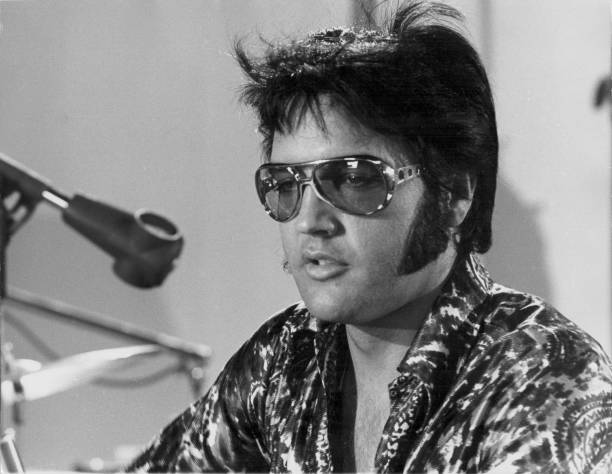 Introduction and Short Summary of the Song
Introduction and Short Summary of the Song
Released in 1969 as part of the soundtrack for the MGM film The Trouble with Girls, “Clean Up Your Own Backyard” is one of Elvis Presley’s sharpest and most socially pointed songs of the late 1960s. Written by Mac Davis and Billy Strange, the track stands out for its witty, biting lyrics that criticize hypocrisy, moral judgment, and the tendency of people to interfere in others’ lives while ignoring their own flaws. Unlike the lightweight soundtrack material Presley had often been given in previous years, this song carried substance, humor, and relevance. While it did not become a major chart hit, it remains notable for its satirical edge and for showcasing Presley’s ability to deliver songs with a message.
Origins of the Song
The song was composed by Mac Davis and Billy Strange, two writers who contributed heavily to Presley’s late-1960s catalog. Mac Davis in particular would go on to provide Presley with significant material, including “In the Ghetto,” “Don’t Cry Daddy,” and “Memories.” Billy Strange, known as an arranger and guitarist, brought a sense of groove and sophistication to the arrangement.
---> Scroll down for the VIDEO
Recorded on October 23, 1968, at United Recorders in Hollywood, “Clean Up Your Own Backyard” was created specifically for The Trouble with Girls, a film in which Presley played the manager of a traveling Chautauqua show. While much of the movie featured nostalgic and period-style songs, this number felt more contemporary and biting, resonating with the cultural shifts of the late 1960s.
Why Elvis Released “Clean Up Your Own Backyard”
By 1969, Presley was in the midst of a career resurgence. The previous year’s NBC “Comeback Special” had revitalized his image, and his Memphis sessions in early 1969 would soon produce hits like “Suspicious Minds” and “In the Ghetto.” Within this context, “Clean Up Your Own Backyard” reflected Presley’s growing willingness to record material with social relevance.
---> Scroll down for the VIDEO
The decision to release the track as a single in June 1969, tied to the promotion of The Trouble with Girls, also showed an effort to align Presley’s film music with the cultural zeitgeist. The message of personal accountability and the rejection of hypocrisy resonated with an audience experiencing the turbulence of the Vietnam War era and the social upheavals of the 1960s.
The Message Conveyed in the Song
The lyrics of “Clean Up Your Own Backyard” cut straight to the point: people are quick to judge others but fail to look at their own faults. Lines such as:
“Clean up your own backyard,
Oh don’t you hand me none of your lies.
Clean up your own backyard,
You tend to your business, I’ll tend to mine.”
deliver a blunt critique of hypocrisy, moral superiority, and self-righteousness.
The message is timeless and universal: before condemning others, one must examine one’s own shortcomings. Presley’s performance carries both humor and conviction, striking a balance between playfulness and sharp social commentary.
The Recording and Musical Characteristics
Musically, “Clean Up Your Own Backyard” combines elements of country, blues, and gospel with a contemporary pop sensibility.
-
Vocals: Presley delivers the lyrics with a playful yet commanding tone, injecting irony into the verses while maintaining authority in the chorus.
-
Instrumentation: The arrangement features acoustic and electric guitars, piano, bass, and steady percussion, creating a groove-driven backdrop.
-
Backing vocals: Gospel-style harmonies, provided by The Blossoms, echo Presley’s lines and reinforce the humor and conviction of the lyrics.
-
Mood: Upbeat yet pointed, the song feels like both a barroom singalong and a moral lesson wrapped in wit.
The recording captures Presley at a point when he was reconnecting with contemporary musical styles, blending his gospel roots with a more modern sensibility.
Cultural and Commercial Impact
As a single, “Clean Up Your Own Backyard” reached number 35 on the Billboard Hot 100 and number 27 in the UK. While not a blockbuster hit, it fared respectably for a soundtrack song and drew attention for its message.
Culturally, the song reflected the shifting attitudes of the late 1960s. Its theme of personal responsibility and criticism of hypocrisy resonated at a time when society was grappling with generational divides, political unrest, and debates about morality. While the track was tied to a film, it stood on its own as a relevant and biting commentary.
For Presley, the song helped mark a transition away from frivolous soundtrack numbers toward more meaningful material. It foreshadowed the socially conscious themes he would embrace in “In the Ghetto” and other late-1960s recordings.
Legacy of “Clean Up Your Own Backyard”
Today, “Clean Up Your Own Backyard” is remembered as one of Presley’s smarter and more socially aware soundtrack songs. While it may not have the cultural weight of “In the Ghetto” or the commercial success of “Suspicious Minds,” it showcases Presley’s versatility and his ability to deliver humor, wit, and commentary with conviction.
For fans, the track is often seen as one of the bright spots in Presley’s late film years, proof that even within the constraints of a soundtrack, he could produce work that felt relevant and engaging.
More broadly, the song’s message remains timeless. Its critique of hypocrisy and judgment continues to resonate across generations, making it as relevant today as it was in 1969.
More than fifty years after its release, “Clean Up Your Own Backyard” stands as a testament to Elvis Presley’s adaptability and his willingness to lend his voice to songs with substance. It may not be one of his biggest hits, but it endures as a witty, pointed reminder of his artistry and his ability to capture the cultural pulse of his era.